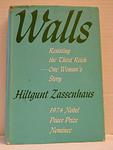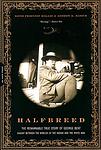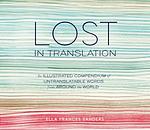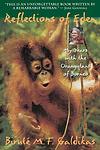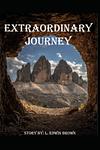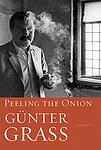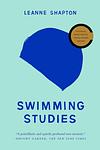The Greatest Canadian, German "Nonfiction, Autobiography" Books Since 1970
Click to learn how this list is calculated.
This list represents a comprehensive and trusted collection of the greatest books. Developed through a specialized algorithm, it brings together 300 'best of' book lists to form a definitive guide to the world's most acclaimed books. For those interested in how these books are chosen, additional details can be found on the rankings page.
Genres
Autobiography is a literary genre that focuses on the life story of the author. It is a first-person account of the author's experiences, thoughts, and emotions, often including significant events and milestones that have shaped their life. Autobiographies can be written by anyone, from famous public figures to ordinary people, and can cover a wide range of topics, including personal growth, career achievements, struggles, and relationships. This genre provides readers with a unique insight into the author's life and perspective, making it a popular and engaging category of books.
Countries
Date Range
Reading Statistics
Click the button below to see how many of these books you've read!
Download
If you're interested in downloading this list as a CSV file for use in a spreadsheet application, you can easily do so by clicking the button below. Please note that to ensure a manageable file size and faster download, the CSV will include details for only the first 500 books.
Download-
1. Walls: Resisting The Third Reich by Hiltgunt Zassenhaus
"Walls: Resisting The Third Reich" is a powerful memoir of courage and defiance, recounting the experiences of a young German woman during World War II who risked her life to oppose the Nazi regime. Working as an interpreter in the German courts, she secretly aided Scandinavian prisoners of war, passing along messages and providing them with hope and support. Her clandestine activities, carried out under the constant threat of discovery and execution, showcase the profound bravery and moral conviction required to resist oppression from within the very heart of a totalitarian state. The narrative not only captures the personal struggle against tyranny but also serves as a testament to the human spirit's capacity for resistance and solidarity in the face of overwhelming adversity.
-
2. Halfbreed by Maria Campbell
This autobiographical book is a powerful and candid account of a Métis woman's struggles with identity, poverty, and racism in Canada. It chronicles her journey from a difficult childhood in a small Saskatchewan community, where she faced discrimination and personal tragedies, to her efforts as an adult to find her place in a society that often marginalized Indigenous people. The narrative is a poignant exploration of the author's search for self-acceptance, cultural pride, and her fight against the systemic injustices that Indigenous communities have endured. Her story is a testament to resilience and the strength found in embracing one's heritage.
-
3. My Father's House by Sylvia Fraser
The book is a harrowing memoir that delves into the author's traumatic childhood, marked by the dark secret of her father's sexual abuse. The narrative unfolds as the author, after years of repressed memories, begins to confront the truth about her past. This journey of self-discovery and healing challenges her understanding of family, memory, and identity. The memoir is a poignant exploration of the long-term effects of abuse and the complex process of recovery, as the author grapples with the betrayal by a person who should have been her protector, ultimately striving to reclaim her sense of self.
-
4. Lost In Translation by Eva Hoffman
"Lost in Translation" is a memoir that explores the profound complexities of identity and language through the lens of a young girl's emigration from Poland to Canada and then to the United States. The narrative delves into the emotional and psychological challenges of adapting to new cultures, the sense of displacement, and the search for belonging. It poignantly captures the experience of losing one's homeland and the struggle to assimilate while maintaining a connection to one's roots. The author reflects on the nuances of language and the deep connection between language and self, offering insights into the immigrant experience and the transformative power of embracing multiple worlds.
-
5. Reflections Of Eden by Birute Galdikas
"Reflections of Eden" is a captivating memoir by a pioneering primatologist who delves into her immersive experiences studying orangutans in the remote rainforests of Borneo. The book chronicles her profound journey, beginning as a young researcher inspired by Louis Leakey and evolving into one of the world’s leading authorities on orangutans. Through her vivid narrative, the author shares the challenges and triumphs of her fieldwork, her deepening understanding of orangutans, and her relentless efforts in conservation. The memoir not only highlights scientific discoveries but also explores the emotional and ethical complexities of her life’s work in the context of the environmental and cultural pressures impacting the region.
-
6. The Boy In The Moon: A Father’s Journey To Understand His Extraordinary Son by Ian Brown
"The Boy in the Moon" is a memoir written by Ian Brown, a Canadian journalist, about his life with his severely disabled son, Walker. The book chronicles Brown's struggles to understand and care for his son, who suffers from a rare genetic disorder that leaves him unable to walk, talk, or even eat on his own. Brown's journey is one of heartbreak, frustration, and ultimately, acceptance, as he learns to love and appreciate his son for who he is, rather than who he might have been. Through his compelling and deeply personal narrative, Brown sheds light on the challenges faced by families with disabled children, and offers a poignant meditation on the nature of love, family, and the human condition.
-
7. Conquest Of The Useless by Werner Herzog
"Conquest of the Useless" is a reflective memoir that presents a collection of the author's diary entries written during the tumultuous production of a major film in the early 1980s. Set in the heart of the Amazon rainforest, the narrative captures the intense challenges faced by the film crew, ranging from logistical nightmares and clashing personalities to confrontations with nature and local cultures. The author's poetic and introspective prose delves into the emotional and existential upheavals experienced during the making of the film, revealing his relentless determination and the surreal experiences encountered in a remote and demanding setting.
-
8. Marzahn, Mon Amour by Katja Oskamp
"Marzahn, Mon Amour" is a reflective and poignant narrative that delves into the lives of ordinary people through the lens of a podiatrist working in the Marzahn district of East Berlin. The book offers a tapestry of human stories, as the protagonist encounters a diverse array of clients, each with their own unique backgrounds and experiences. Through the intimate setting of the treatment room, the author weaves together tales of the community's past and present, exploring themes of identity, resilience, and the search for meaning in the day-to-day. This work serves as a touching exploration of the seemingly mundane aspects of life that, upon closer inspection, reveal the depth and complexity of the human condition.
-
9. Peeling the Onion by Günter Grass
"Peeling the Onion" is a memoir that explores the author's experiences during and after World War II. The author, a Nobel laureate, reveals his involvement with the Waffen SS, a paramilitary organization of the Nazi party, when he was a teenager. The book delves into the author's struggle with guilt and memory, his journey to becoming a writer, and his exploration of how personal and collective memory impact our understanding of history. It is a candid, introspective look at the complexities of identity, morality, and truth.
-
10. Swimming Studies by Leanne Shapton
This memoir offers a unique and introspective look into the world of competitive swimming and how it shapes one's identity and life beyond the pool. The author, a former Olympic trial swimmer, uses her experiences in the water to explore broader themes of discipline, memory, and the passage of time. Through a blend of personal narrative, vivid watercolor illustrations, and photographs, the book delves into the minutiae of swimming - from the smell of chlorine to the textures of different pools - and how these sensory experiences and the rigorous demands of training have influenced her artistic career and personal growth. It's a reflective and beautifully crafted exploration of the intersection between athleticism and artistry, and how past passions can continue to influence and inform our lives in unexpected ways.
Reading Statistics
Click the button below to see how many of these books you've read!
Download
If you're interested in downloading this list as a CSV file for use in a spreadsheet application, you can easily do so by clicking the button below. Please note that to ensure a manageable file size and faster download, the CSV will include details for only the first 500 books.
Download